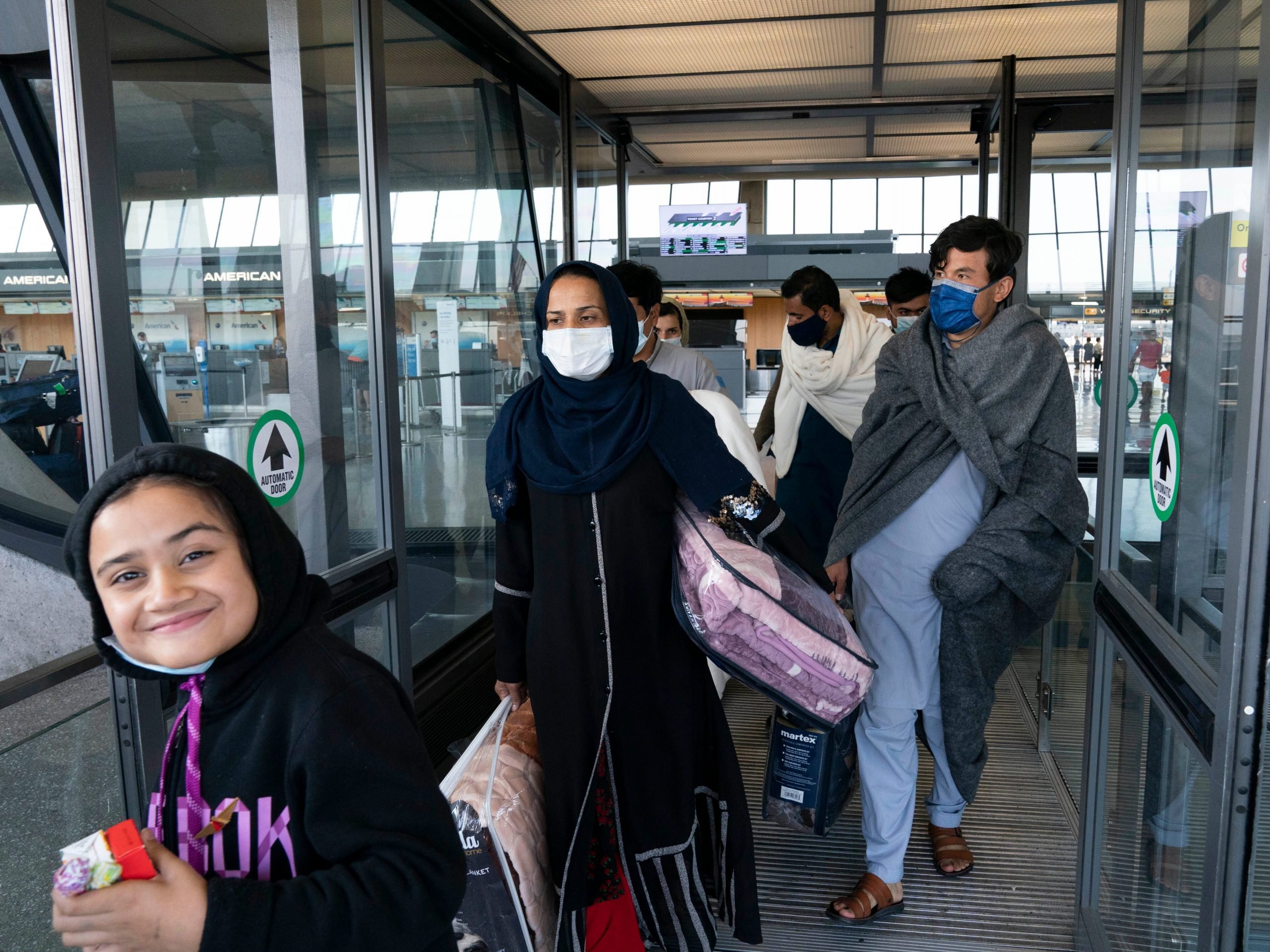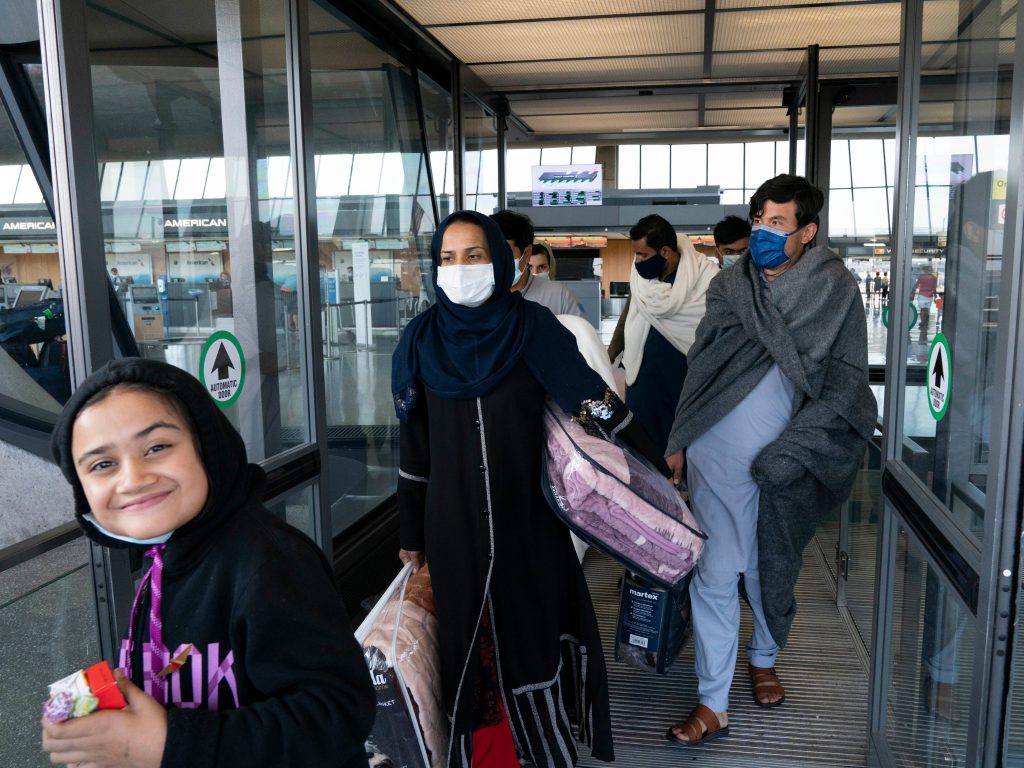
Jose Luis Magana / Associated Press
- US refugee resettlement agencies are scrambling to accomodate an influx of Afghans fleeing the Taliban.
- Mark Hetfield, CEO of the Hebrew Immigrant Aid Society, told Insider he expects these groups will help around 50,000 Afghans relocate.
- Five agency leaders told Insider they're struggling to find enough staff, funding, and housing to accomodate the new arrivals.
- See more stories on Insider's business page.
US refugee resettlement agencies are scrambling to pull together resources to accommodate an influx of refugees from Afghanistan as the Taliban consolidates its rule there.
Five agency leaders told Insider that their organizations are facing serious obstacles to finding enough staff, funding, and housing to accommodate the new arrivals.
More than 117,000 people, most of them Afghans, were evacuated ahead of the August 31 US evacuation deadline. Resettlement agencies expect to help around 50,000 refugees over the next few months, but there's no way to tell if that number is accurate, according to Mark Hetfield, CEO of the Hebrew Immigration Aid Society.
The US only accepts refugees from Afghanistan that have already fled to a different country, which can prolong the process. As Insider previously reported, the US had accepted less than 500 Afghan refugees through July of this year.
Many groups are rushing to ramp up hiring after the Trump administration had drastically cut back on the amount of refugees it admitted to the US and made steep cuts to the programs that help them resettle.
Jennifer Sime, the vice president of resettlement, asylum and integration at the International Rescue Committee, told Insider that the organization has to bump up its staff numbers significantly to meet the number of Afghan refugees they plan to have to relocate.
"The biggest thing is that they trumped the program," Sime said. "It went from 85,000 refugees coming into the country the last year that Obama was president to down to about 15,000. So obviously with that, we lost some of the infrastructure in terms of sites as well as staffing."
HIAS is also scrambling to replace staff members it had to cut during the years former President Donald Trump was in office, according to Hetfield.
"Staffing is hard enough these days with the economy being what it is right now, but everybody is down to the bare skeletal structure right now," Hetfield said.
Funding shortfall
Several of the resettlement agency leaders told Insider that funding for the 2022 fiscal year kicking in will be crucial for them to absorb the surge of Afghans who need aid. Hetfield said HIAS is still waiting for its 2022 funding, and the organization expects it will need additional resources beyond that.
"The problem is it's still not enough," Hetfield said. "We're gonna have to raise a lot of private resources."
Hetfield told Insider the State Department made it "quite clear" that helping Afghan refugees is going to require outside resources. He said part of the reason resettlement agencies that contract with the US government receive so little cash assistance is that the amount is based on a "very 20th century" list of essentials the groups must provide refugees that does not include equipment, like laptops and smartphones, that is vital to searching for jobs.
"We get, what, $1,225 per refugee in cash assistance, and that is to cover rent and cash and furnishing apartments and everything else," Hetfield said. "And of course everybody knows that it doesn't."
The State Department did not provide a response to Insider's request for comment.
NPR reported that refugees get a stipend of $1,100 per person for three months after arriving in the US. Many Afghans will be coming on so-called "humanitarian parole," however. That is effectively a pass to get into the country, but not a permanent legal status. Those who receive it must apply for asylum or some other visa - and in the meantime, they do not have access to the same benefits as refugees.
The US government is looking to provide some aid, however. An official at one leading refugee agency told Insider they expect to receive $2,275, split between the organization and the parolee. Additional costs will, as always, require private donations.
"We were raising private resources for this during the pandemic because so few refugees were arriving, but now we're going to have to step it up to a whole new level," Hetfield said.
Sime also said she expects the IRC to be dependent on private funds, apart from government resources, to help Afghan refugees access the services that will help them integrate beyond the first few months after they arrive.
Housing shortage
Providing housing for refugees is a heavy lift for resettlement agencies even in the best of times, so the sudden surge of Afghans coming into the country presents an even greater challenge. Jenny Yang, vice president of advocacy and policy at World Relief, told Insider that finding housing for Afghan refugees and Special Immigrant Visa (SIV) holders has been so difficult that the organization is relying on volunteers to open their homes.
Erol Kekic, vice president of the immigration and refugee program at Church World Service, said housing refugees in California specifically is one of the biggest challenges his agency is navigating.
"It's very difficult to accommodate families," Kekic said. "In northern California, there are fires, people are coming to assist with fighting fires. The hotels are booked, so it's difficult to find even a temporary accommodation."
California, which takes in more refugees than most other states, has a significantly higher cost of living than much of the country. The average cost of a home in California is more than seven times the median income of families in the state, according to a report from CalMatters.
"These people do not come here with money," Kekic told Insider. "They come here with need."
